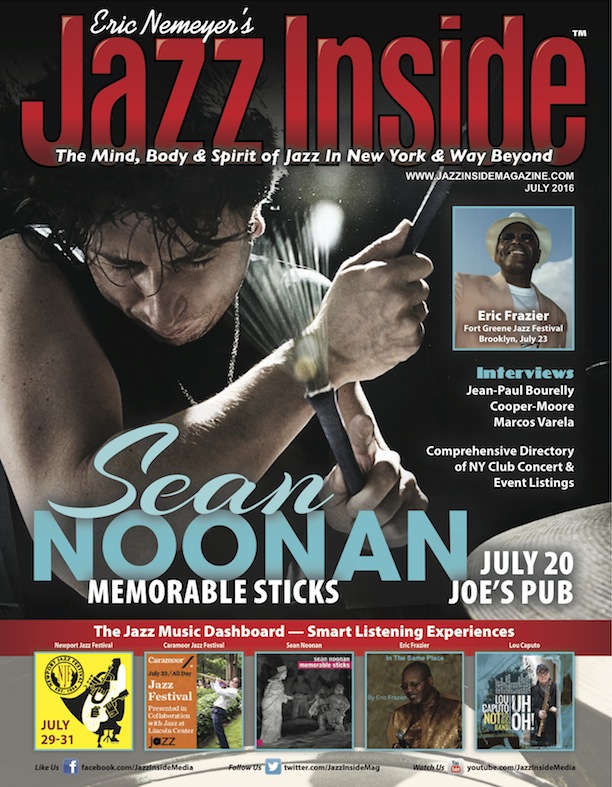
The label/production studio JPGotMangos was formed in 2005 as an independent outlet/studio for JP's most personal and indie musical ideas. He continues to produce from this creative hub today.
JP's solo acoustic CDs (News From a Dark Out Room, CutMotion, 3KINGS "Famous Guys", Stone Raiders "Truth to Power", Kiss The Sky, Citizen X) are some of the albums produced through JPGotMangos.

Jean-Paul Bourelly: "We are relevant again".
Interview - Head of "Livres du Soir"
By Jean-Claude Vantroyen
Published on 29/03/2022
With a name like his, you'd expect Jean-Paul Bourelly to be French, or at least speak it. But no, the guitarist is American: he was born in 1960 in Chicago, but his father was Haitian, hence his surname.
As soon as he heard Jimi Hendrix, Jean-Paul wanted to be a guitarist. He became one, and a famous one at that. As soon as he heard Charlie Parker, he wanted to play jazz. Today he mixes jazz, blues, and rock with his Haitian heritage and African rhythms. An explosive mix, he has played with McCoy Tyner, Steve Coleman, Marc Ribot, Archie Shepp, Cassandra Wilson, and Amandla's Miles Davis. And now he can be heard on 'Masters of mud', his track on the album Black Lives. Bourelly lives between Berlin and Washington. But he was in Zurich for this interview via Zoom.
JCV: How did you end up on the Black Lives album?
JPB: I've known bassist Reggie Washington for a long time, I took him into my band early on. He played on my Boom Bop album with Archie Shepp. And when he and his wife Stefany started looking for artists for the album, he asked me if I wanted to be on it, and I said yes of course. I was in Washington at the time and my mind was already trying to express in music how I felt about this ongoing racism.
JCV: And you wrote this song with Terence Nicholson.
JPB: Yes, he wrote the lyrics. He calls himself "Sub Z" now, but I say "Z". He lives in Washington too and we were at those Black Lives Matter marches. We were in the same confluence of energy and spirituality to express ourselves in music. You know, I followed all the work of Max Roach in the 60s, and then Roy Haynes and John Coltrane, this movement to reconnect with Africa, with this West African feeling that we shared. And that's what I wanted to do with this piece.
JCV: Can this album play a role in the fight against racism?
JPB: I believe in the young generation, the one that is open, that can understand, that can invest against racism. If music can reach a young audience, I think it will act as a conscious mechanism. That's all music can do. You never know exactly how it works, but these mechanisms go out into the world. And sometimes people listen. They listened a lot to the meaning of the songs in the late 1980s and early 1990s. And then they moved on. And now the movement is coming back, there is a desire to find messages in music again. I think we're relevant and concerned again, which is great.
JCV: There is a cry of rage in this album, but also a glimmer of hope.
JPB: A cry of rage is always at the same time a glimmer of hope. You remember Coltrane and the others in the 1960s, their music expressed both anger and freedom. These are waves and I think we're in a wave like that again.
END
Recording R Time at the Power Station in Connecticut
Recording with R Time: Reut Regev (trombone), Igal Foni (drums), Mark Peterson (acoustic and e-bass). Fresh directions in improvisational music. Looking forward to this on the horizon.
Captured with 360 Panorama in 58.8 seconds


JPB INTERVIEW
JI: What awareness are you looking to trigger in others?
JPB: You have to witness how this process en- hances life. I may not be doing it but it’s possible that from you seeing my performance, you might be triggered to do something and you can get where I didn’t go. It’s a cosmic exchange of ener- gy. That person can then come out with a record- ing, send me an email, and say, “Check this out, I heard you’re thing and this is what I did,” and I’ll be like, ‘Wow, that’s actually where I was trying to go!’ Maybe he couldn’t have gotten there without hearing me, just like I wouldn’t be able to play some of the rhythms I play without listening to Ti Roro, the Haitian percussionist, the only music of voodoo real roots music of Haiti that was allowed in the house at the time in the ‘60s and ‘70s. I couldn’t even visualize what I’m doing now with- out listening to Elvin Jones and Doudou N’Diaye Rose, one of our still living masters of rhythm...
Download the issue here
For inquiries and collaborations contact info@jpgotmangos.com